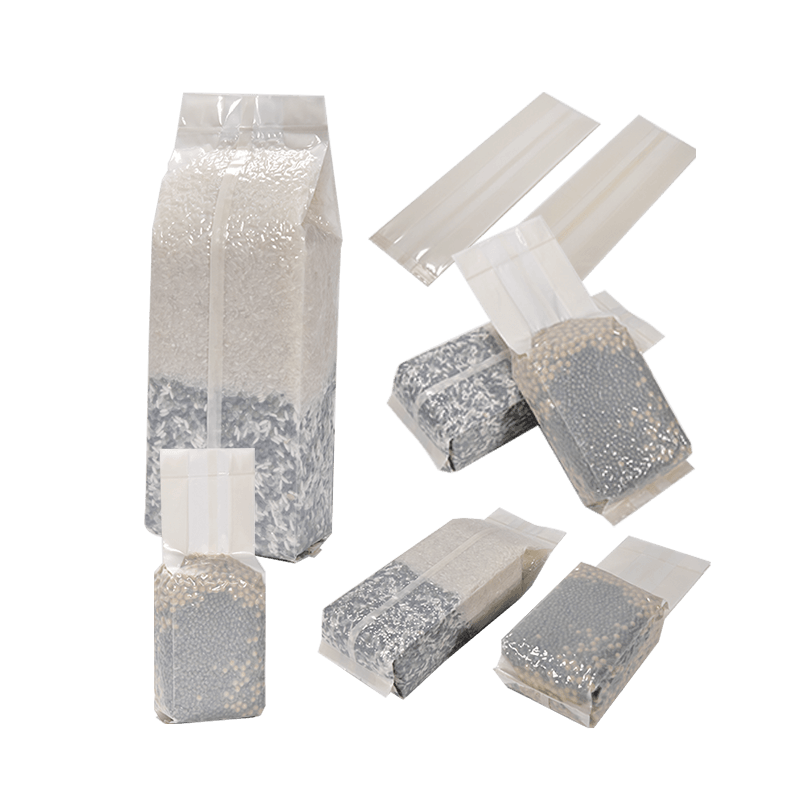Eco-Friendly Vacuum Bags: Safe, Sustainable, and Effective
Biodegradable vacuum bags are transforming the packaging landscape by combining performance, sustainability, and safety into a single solution. Designed for high-barrier vacuum packaging, these bags are not only moisture-proof and light-blocking but also boast exceptional anti-static and oxygen-barrier capabilities. Made from a blend of materials like PET, PE, PLA, and PBAT, they maintain the freshness and integrity of packaged products while reducing environmental impact. However, a key question often arises: are these biodegradable bags free from harmful additives like BPA, phthalates, or heavy metals? Let’s dive into the answer while exploring the broader advantages of this innovative packaging.
Safety is paramount when it comes to food-grade packaging, and biodegradable vacuum bags meet stringent regulatory standards to ensure product integrity. Many are free from BPA, a chemical linked to potential health risks, and do not contain phthalates, which are often used as plasticizers in conventional plastics but are a cause for concern due to their potential endocrine-disrupting properties. Additionally, most biodegradable vacuum bags are tested for heavy metal content, aligning with safety regulations like the FDA and EU food-grade packaging standards. Manufacturers typically ensure that these bags comply with certifications such as ASTM D6400 or EN 13432, guaranteeing they are both safe for food contact and environmentally friendly.
The absence of harmful additives in biodegradable vacuum bags stems from their unique material composition. PLA and PBAT, two of the primary biodegradable polymers used, are derived from renewable sources and are inherently free from toxins. This makes them an excellent choice for sensitive applications, especially in the food and healthcare industries. For those seeking customization, these bags can be tailored to specific thicknesses and barrier properties, offering versatility without compromising safety. Whether you're packaging delicate produce or high-fat items, the materials maintain their structural integrity while safeguarding against contamination.

Choosing biodegradable vacuum bags goes beyond safety—it’s a step towards sustainable packaging practices. Unlike traditional plastics that persist in landfills for centuries, these bags degrade under appropriate composting conditions, leaving minimal to no harmful residue. This characteristic aligns perfectly with global efforts to reduce plastic waste and environmental harm. For businesses, adopting such eco-friendly packaging solutions also enhances brand image and customer trust, as sustainability becomes a critical purchasing factor for consumers.
For practical use, biodegradable vacuum bags integrate seamlessly into existing workflows. They are compatible with standard vacuum sealing equipment, ensuring easy adoption without the need for additional investment. Their superior heat-sealing performance ensures reliable product preservation, while customizable designs accommodate diverse packaging needs. Additionally, their ability to meet high-barrier requirements makes them suitable for applications ranging from sous vide cooking to pharmaceutical storage, all while upholding the promise of safety and environmental responsibility.
In conclusion, biodegradable vacuum bags represent the future of safe, sustainable packaging. Free from harmful additives like BPA, phthalates, and heavy metals, they deliver peace of mind alongside superior performance. By adopting these innovative solutions, businesses can protect their products, align with environmental goals, and meet the growing consumer demand for responsible packaging. These bags are more than a packaging choice—they are a commitment to safety, sustainability, and progress.


 English
English 中文简体
中文简体 Español
Español

















